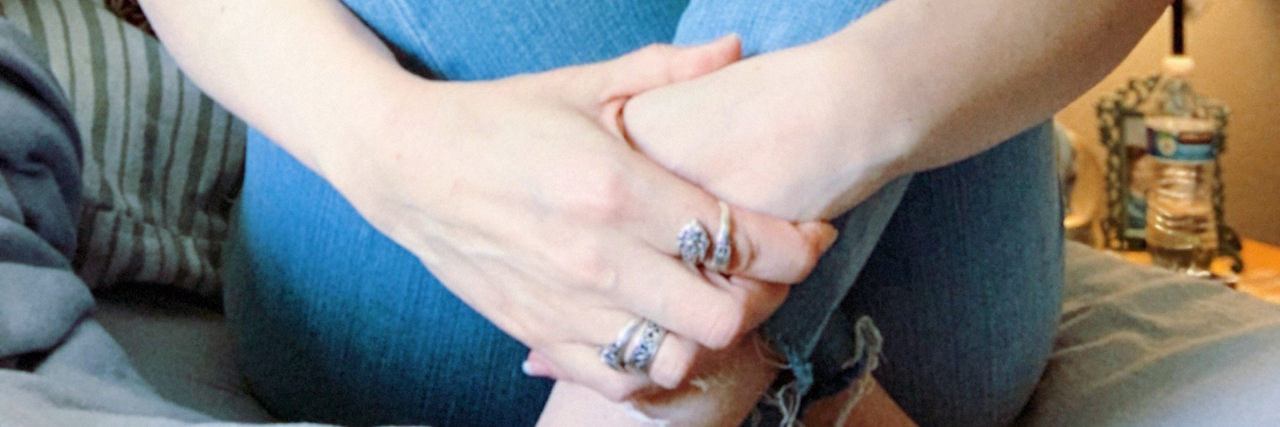If You're a Sexual Assault Survivor You Need to Know About This Day
Editor's Note
If you’ve experienced sexual abuse or assault, the following post could be potentially triggering. You can contact The National Sexual Assault Telephone Hotline at 1-800-656-4673.
Clothes have always been an expression of who I am. When I was a teen in the early 2000’s I wore a lot of emo and punk outfits. I loved my skinny black jeans, my dresses from Hot Topic, and fun cosplay. “What are you wearing?” was a question I thought I’d be asked on the runway of an award show or at Comic-Con, not something that would haunt me after an assault.
When you hear International Denim Day, you might think it’s a day to look cute in your jeans and wear matching denim with your friends, but don’t let the name fool you. Denim Day is truly more important than that. Denim Day started in 1999, after a 1992 ruling by the Italian Supreme Court where a rape conviction was overturned because the judge felt that since the victim was wearing tight jeans she must have helped the person who raped her remove her jeans, which implied consent. The next day, the women in the Italian Parliament came to work wearing jeans in solidarity with the victim. Since then, the campaign has gone global with the first event beginning in April 1999, in LA to bring awareness to victim-blaming and stigmas that surround sexual violence.
When I first learned of the history of Denim Day, I felt like I was in that courtroom with the young 18-year-old survivor. When I was 18, I was sexually assaulted and raped by a college boyfriend that I had been seeing for about two months. I was warned by my parents and friends that he was “bad news.” But in my rebellious state, I refused to listen and kept dating him anyway. The relationship became abusive, until one day he pushed himself on me when I said no and kept going anyway. I never came forward at the time because I believed the stigmas that surrounded sexual assault. I was scared that people would point in confirmation that it was indeed my mistake. When we victim blame and ask questions of the survivors like, “What were you wearing?” “Were you drinking?” “Did you lead them on?” we silence the survivors. When I went through such a traumatic event I often blamed myself and asked myself if I would’ve done something different would the outcome have changed. But there was nothing I did wrong, I was raped because he was a rapist.
Denim Day opens up the dialogue around the stigmas of just not what we wore, but the questions we are faced when we are assaulted and how they need change. Victim-blaming and victim-shaming are still thriving in today’s society and it’s time to tear down these stigmas so others like me can tell their story.
For a time after, I felt that I was unsafe in my usual outfits. The types of styles I loved wearing, I no longer wore anymore. My usual Hot Topic outfits stayed in drawers. I mostly hid under baggy clothes and outfits I thought helped me blend in. It took years of healing to realize that my clothes were not an invitation to rape or to be sexually assaulted. Denim Day is an important reminder to me that what I wore did not matter. They do not imply consent. Consent implies consent and there was nothing I did wrong or to deserve it. Wearing the clothes I love again has been a healing process. It makes me smile to wear my Hot Topic outfits again in my 30’s. Today I wear my jeans in protest. Today I wear my jeans because what I wore did not matter. Will you be wearing jeans today? Please check out DenimDayInfo.org for more information.
Lead image proved by contributor

